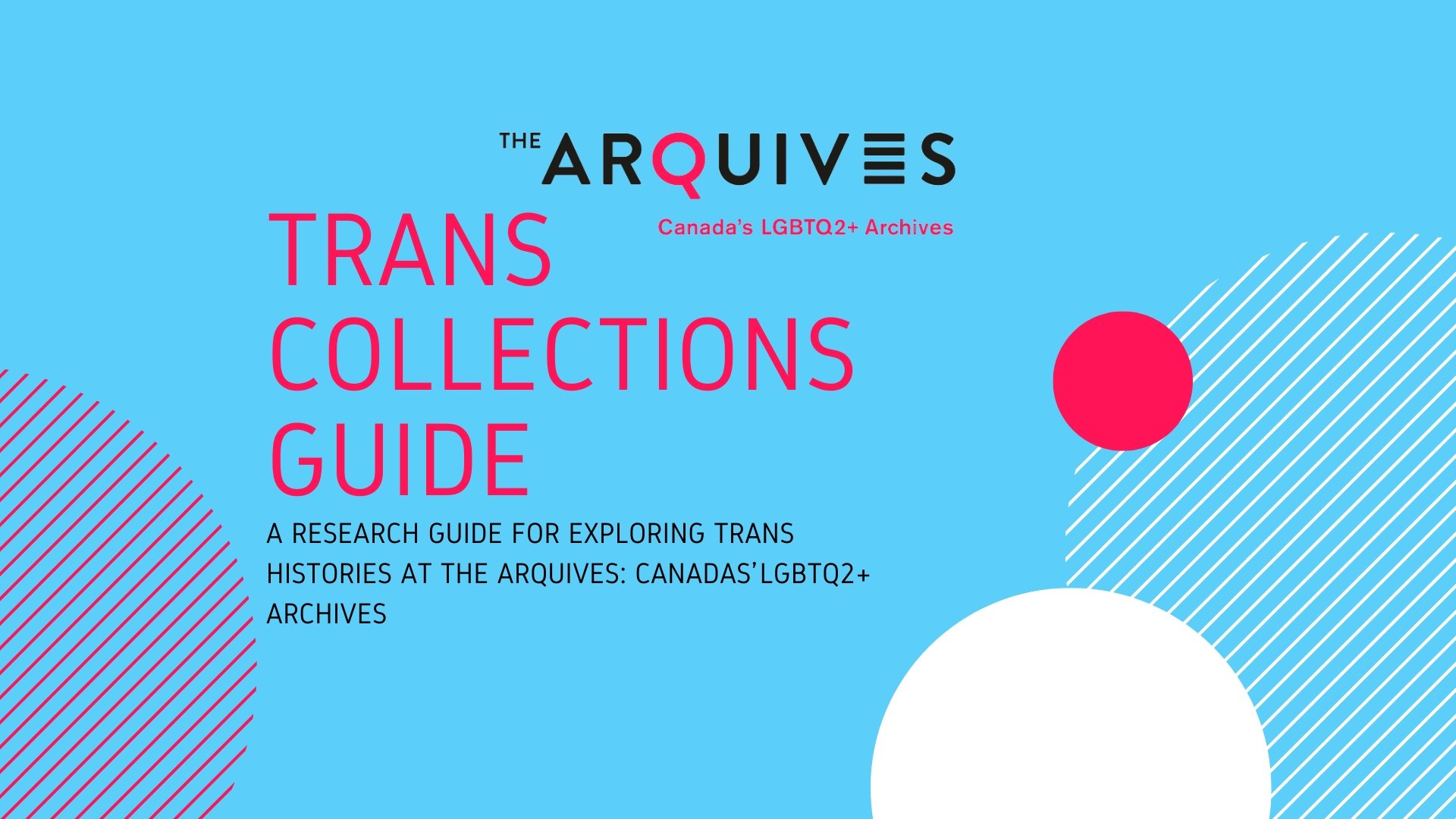LGBTQ Oral History Digital Collaboratory
Since 2011 I have been conducting oral histories with people in the LGBTQ+ community. Much of this work has been funded by the Social Sciences and Humanities Research Council of Canada (SSHRC) for a project I direct called the LGBTQ Oral History Digital Collaboratory (2014-2025). Founded in 2014 and based at the University of Toronto Mississauga, the Collaboratory is a public and digital humanities research initiative. In collaboration with archival partners, we are preserving hundreds of gay, queer, and trans life stories, using new methodologies in digital history, collaborative research, and archival practice.
Featured Projects
Pussy Palace Oral History Project
2021-2025
A SSHRC-funded collaboration with The ArQuives: Canada’s LGBTQ2+ Archives and 36 community narrators, documenting the history of the Pussy Palace (c. 1998-2014), a series of bathhouse events for queer women and trans people. Interviews address the September 2000 police raid—the last major police raid on queer bathhouse in Canada—the cultivation of queer joy, and radical sex/gender cultures in turn-of-the-21st-century Toronto. Visit our project website to screen the oral history interviews, explore our robust collection digital research creation, and engage with this radical moment of Toronto’s sexual culture for yourself.
trans activism oral History Project
2019-2021
A joint partnership with the University of Victoria’s Transgender Archives, The ArQuives, and filmmaker Chase Joynt documenting the activist histories of 22 trans elders in the US and Canada over the past 50 years. Interviews address histories of activism on behalf of trans people and communities, establishing trans-specific and trans-positive primary source historical narratives that can be preserved for future generations. The project culminated in a digital exhibition, Word of Mouth: How the Trans+ Community Found Itself, drawn from the oral histories and archival materials housed at the Transgender Archives
Trans Collections Guide
2020
A collaboration with The ArQuives, this 70-page guide assists researchers and community members interested in exploring trans histories. It provides an overview of relevant materials in The ArQuives’ holdings, including the collections of Canadian artists, activists, and intellectuals like Mirha-Soleil Ross, Rupert Raj, and Anton Wagner. It also includes detailed information about how to request and access these materials, identifying common challenges that researchers face when exploring trans histories both at The ArQuives and more generally in collections predominately focused on gay and lesbian histories.
Family Camera Network
2016-2019 (Principal Investigator, Thy Phu)
A collaborative, community-based project at the intersection of photography and oral history, documenting family photography as a critical building block for understanding self, family, community, and nation in Canada. The team collected 42 oral histories, 60 albums, 37 home videos, and over 17,000 accompanying family photographs, establishing a public archive of family photographs and their stories, focused on migration in the near or distant past, and to and within Canada. Housed at the Royal Ontario Museum and The ArQuives, the project also spurred the Queering Family Photography exhibition.
FOOLSCAP GAY ORAL HISTORY PROJECT
2016-2018 and 1981-1987
Foolscap was a Toronto-based oral history project about pre-Stonewall gay life, conducted by John Grube and Lionel Collier in the 1980s. The project produced over 100 life histories, addressing topics like the Stonewall Riots, Operation Soap, HIV/AIDS, psychiatry, policing, sex work, intergenerational relationships, health, and aging. The collection includes over 300 audio recordings from 125 interviews with 100 narrators; 51 interviews have transcripts. Working with students, we collected and digitized the tapes, written abstracts and metadata, and created a digital exhibition entitled Mapping Foolscap: Gay Oral Histories 1981-1987.
trans healthcare activism
2016
A collaboration with The ArQuives, this video oral history project focuses on the 1998 delisting and 2008 re-listing of coverage for gender confirmation surgery under Ontario’s health care plan. We conducted 8 interviews with 7 activists, community members, and politicians who were either affected by the policy changes, or who worked to fight for access to quality health care and equality for trans people in Ontario and beyond. They speak passionately about the need to push strategically to fight for trans people's access to quality health care. The project culminated in a digital exhibition hosted at The ArQuives.
TRANS PARTNERS PROJECT
2011-2016
This audio-based oral history project explores the experiences of partners of trans men, focusing on those who were with their partner before and during at least six months of their transition. Drawing from 50 interviews with partners in the US and Canada, the project highlights their unique perspectives and journeys. Although the interviews are not publicly accessible, I have compiled a dedicated resources page for additional information and support.
LESBIANS MAKING HISTORY (LMH)
2014 and mid-1980s
The LMH collective came together in the mid-1980s, inspired by oral history projects of gay lives coming out of Buffalo, Boston and San Francisco. The collective interviewed 9 women about their experiences as ‘out’ lesbians in the 1950s, 60s, and 70s. In 2014, the Collaboratory digitized these materials and created new verbatim transcriptions, assisted by original LMH members. The project culminated in a digital exhibition hosted at The ArQuives.







